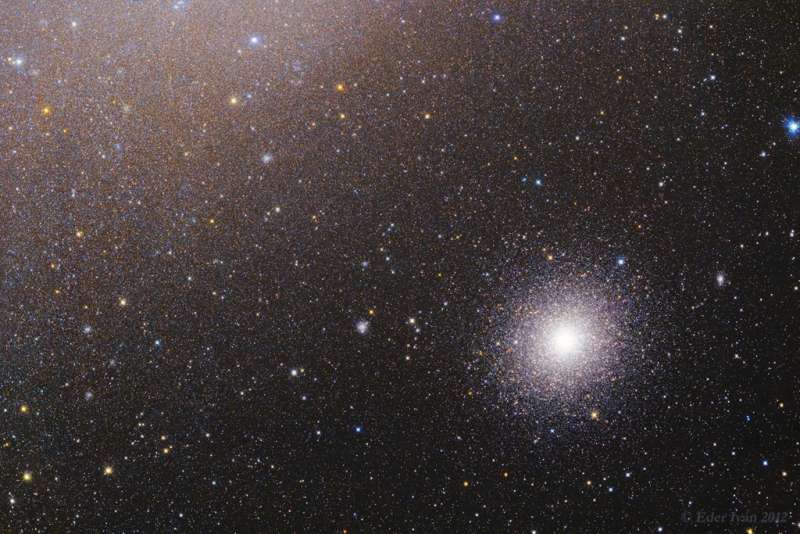Credit & Copyright: Ivan Eder
Explanation:
Globular star cluster 47 Tucanae is a jewel of the southern sky.
Also known
as NGC 104, it roams
the halo of our Milky Way Galaxy
along with around 200 other globular star clusters.
The second brightest globular cluster (after
Omega Centauri)
as seen from planet Earth, it lies about 13,000 light-years away and
can be spotted naked-eye near the
Small Magellanic Cloud (SMC)
in the constellation of
the Toucan.
Of course, the SMC is some 210,000 light-years
distant, a satellite galaxy of our Milky Way and not physically close
to 47 Tuc.
Stars on the outskirts of the SMC are seen at the upper left of
this
broad southern skyscape.
Toward the lower right with about the same
apparent diameter as a Full
Moon, dense cluster 47 Tuc is made up of several million
stars in a
volume
only about 120 light-years across.
Away from the bright cluster core,
the red giants
of 47 Tuc are easy to pick out as yellowish tinted stars.
Globular cluster 47 Tuc is also home to exotic
x-ray binary star systems.
Authors & editors:
Robert Nemiroff
(MTU) &
Jerry Bonnell
(USRA)
NASA Web Site Statements, Warnings,
and Disclaimers
NASA Official: Jay Norris.
Specific
rights apply.
A service of:
LHEA at
NASA /
GSFC
& Michigan Tech. U.
Based on Astronomy Picture
Of the Day
